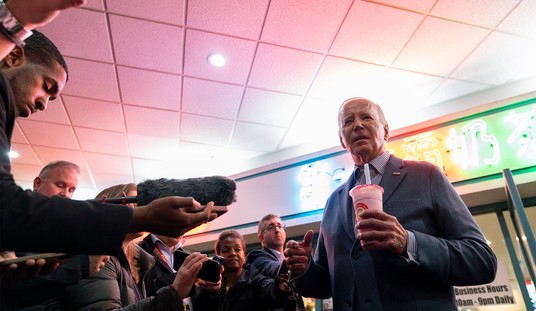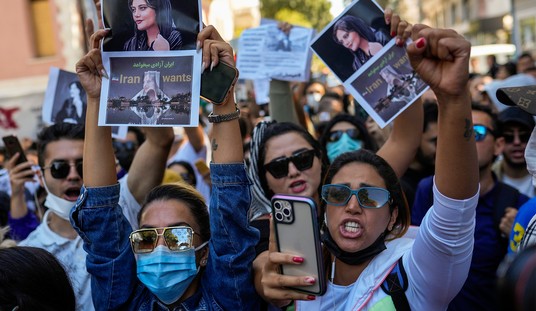An excellent, thoughtful and substantive article about the different Lefts in Latin America appears in the new issue of the social-democratic magazine Dissent. Written by Ignacio Walker, a former minister of foreign affairs in Chile (2004-2006), and a visiting senior research scholar and professor at Princeton University (2007-2008), it is a serious and important contribution to understanding what is happening in our hemisphere.
Already I can see all the comments from conservatives screaming at me for recommending something written in a left of center publication. Spare yourself the time attacking me, and read his entire article before you even run to your keyboard. If we cannot learn from those whom we may disagree with politically, we are in danger of arguing for policy based on rhetoric, and not on comprehension of a political reality.
In this specific case, Walker argues that one cannot refer simply to a Latin American Left, as if it is one homogenous and undifferentiated thing. Rather, he argues that there are three distinct Lefts: populist, Marxist, and social-democratic. Populism emerged in the 1940s through the 60s, Walker points out, and is “characterized by negative attitudes toward liberal-democratic institutions and liberal capitalism-in Europe, Nazism, fascism and Stalinism; in Latin America, corporatism and populism.”
Obviously, the current regime of Hugo Chavez in Venezuela is the best example of the new populist regimes that are threatening our hemisphere, and pose a challenge to the United States. As we all know, Chavez is seeking allies not only in Nicaragua, but in Iran and Russia. And that is why clarity about the nature of the Left in our hemisphere is so sorely needed.
As the magazine’s co-editor, political philosopher Michael Walzer writes in the editor’s page of Dissent, Walker’s “critique is especially valuable since so many leftists have foolishly celebrated Venezuela’s Hugo Chavez, who reminds us of no one so much as Argentina’s Juan Peron.”
One of the reasons so many leftists respond favorably to people like Chavez is because they speak in the name of the “masses.” As Walker writes, to populists, what really matters is the incorporation of the masses,” but any view of democratization is not be obtained via institutions of representative democracy, since they regard them suspiciously.
And, he notes, the new populist leaders depend for legitimacy on “the personal characteristics of a charismatic leader and his or her identification with the masses that prevail over any form of institutional constraint.” Thus Hugo Chavez is said to be above any institutions, since he embodies the people themselves in his very being.
In contrast to the kind of regime Chavez is trying to build in Venezuela, Walker points to the new type of social-democracies. While they are seeking to create a viable structure that benefits the dispossessed, they are committed to economic growth and essentially to democratic capitalism. Moreover, they do not view the United States as an enemy, although at times, their officials have to give lip service to leaders of the traditional old-line Marxist Left. The new governments Walker praises are “increasingly market friendly, with a favorable attitude toward globalization-aware not only of the threats it represents but of the opportunities that it provides.” He continues to contrast Venezuela with the social democratic governments in Brazil and Chile, which are developing a new style of politics in Latin America.
That means that the United States can work with and help such governments succeed. Most important is to recognize, Walker notes, that the Chavez regime “is not representative of but rather exceptional within the complex and diverse reality of Latin American politics.” The hysterical Right in this country has often ignored this, and responded to Chavez’s posturing as if he represents the entire region. The important point made by Walker: “This left may be less visible than the one represented by Chavez, but it is not less effective, especially when faced with the challenge of consolidating democratic institutions in Latin America.” These parties, although leftist, do not bypass the institutions of representative democracy, and the parties that lead them “work within and strengthen these institutions.”
These governments, and their democratic leaders, do not lend themselves to the hosannas of the likes of Sean Penn. Let me return once more to his endless diatribe on The Huffington Post, to which I referred yesterday. Penn traveled through Venezuela with Hugo Chavez, and proclaimed him a “great man.” But what is most striking is the flim-flam the authoritarian populist tried to play on him, evidently successfully. Chavez explained his relationship to Iran; it is simply that he needs Iran as an ally “as a buffer to American imperialism.” Penn thinks Chavez is a great “student of history.” He is mesmerized and taken in by him thoroughly. He does not realize that Chavez is an authoritarian populist, and he does not challenge the description Chavez gives of his views. An amazing exchange on this question takes place.
Christopher Hitchens, the columnist and ex-Trotskyist, accompanied Penn in his meeting with Chavez. Hitchens responds when Chavez tells him to ask the hardest question he can think of. Hitchens asks: “What’s the difference between you and Fidel?” Chavez answers: “Fidel is a Communist. I am not. I am a social-democrat. (my emphasis) Fidel is a Marxist-Leninist. I am not. Fidel is an atheist. I am not.” Venezuela, he tells them, “must have a democratic socialism.”
Hitchens must have held his breath and stopped himself from laughing as he heard this. Penn gives no indication of what he thought, except to present everything as if Chavez’s explanations are to be taken at face value. For those who believe in the principles of social-democracy and democratic socialism, the last thing they need is Chavez claiming that under his leadership, Venezuela is creating a social-democracy. As Michael Walzer clearly understands, Chavez’s regime makes a mockery out of the values that he, and I hope Christopher Hitchens, believe in. One thing is most clear. Hugo Chavez knows what to say to gullible enthusiasts like Sean Penn.








Join the conversation as a VIP Member